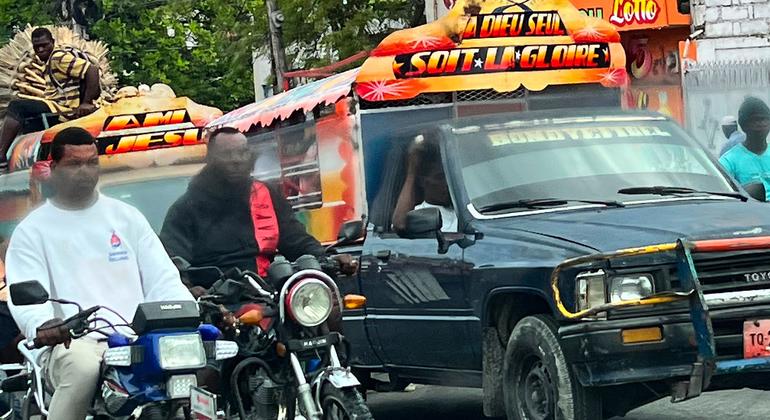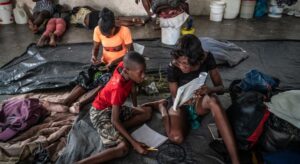
[ad_1]

The terminal is located in Port-au-Prans, the capital of Haiti, which is the main gateway for bringing fuel into the country. However, armed gangs have blocked entry since mid-September.
Due to this there has been a shortage of fuel in Haiti, many hospitals and health centers have to be closed and water distribution service has also been affected.
UN Special Representative for Haiti and Resident Coordinator for Humanitarian Relief Ulrika Richardson told the capital, “We have called for a humanitarian corridor to be established so that fuel can be sent to the city and other parts of the country, and we will respond in our own way.” Can ensure measures.
“Without fuel, there is no clean water. without clean water, [हैज़ा के] The more cases there are, the more difficult it will be to contain the spread.”
The Haiti government confirmed two cases of cholera on Sunday, bringing the total to 11. Seven people have died and the number of suspected cases is 111.
The actual number of cholera cases is expected to be much more than this and may increase rapidly in the current situation.
impact on common life
Insecurity has increased in Haiti in recent months, affecting the lives of ordinary citizens. They are facing restrictions on movement, looting, sexual violence and other difficulties.
Due to the ongoing crisis at the fuel terminal, people in the capital are forced to buy fuel on the black market at exorbitant prices.
“There has been a really serious impact on sanitation and health care,” said the senior UN official.
“Garbage has not been picked up for months due to violent conditions, street violence caused by armed groups and fuel shortages.”
Preventive measures crucial
Keeping in mind the dire humanitarian situation in Haiti, the emphasis is on taking measures to protect the local people.
Over the next three months, about 30,000 pregnant women and about the same number of newborns are at risk of missing out on health care.
Lakhs of children are not getting education as they are unable to go to school. About 30 schools have either been looted or attacked in the last month alone.
In addition, 45 percent of the country’s population (4.5 million people) is unable to get enough food, while 7,000 victims of sexual violence have not received the necessary assistance.
The UN Security Council will convene a meeting on the security situation in Haiti this month. Prior to this, the entire UN system is supporting efforts to combat the cholera outbreak in the country.
UN Agency for Humanitarian Relief (UNA)OCHA) has assumed coordination, and other UN agencies are leading collective efforts with local and international partners.
So far, much-needed medicines and equipment have been distributed, cholera treatment centers have been established and capacity to prevent infection has been increased. In addition, steps have been taken to improve sanitation and water access.
People are being contacted at the community level.
In Haiti, messages have been sent to about one million people on mobile phones every day and materials have been distributed door-to-door, in which information about preventive measures is being given.
[ad_2]
Source link





